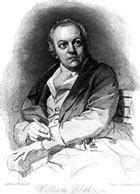A Quote by Polybius
The glorious memory of brave men is continually renewed; the fame of those who have performed any noble deed is never allowed to die; and the renown of those who have done good service to their country becomes a matter of common knowledge to the multitude, and part of the heritage of posterity.
Related Quotes
It is natural to admire and revere really great men. They hallow the nation to which they belong, and lift up not only all who live in their time, but those who live after them. Their great example becomes the common heritage of their race; and their great deeds and great thoughts are the most glorious legacies of mankind.
To be an object of hatred and aversion to their contemporaries has been the usual fate of all those whose merit has raised them above the common level. The man who submits to the shafts of envy for the sake of noble objects pursues a judicious course for his own lasting fame. Hatred dies with its object, while merit soon breaks forth in full splendor, and his glory is handed down to posterity in never-dying strains.
The treasury of America lies in those ambitions, those energies, that cannot be restricted to a special favored class. It depends upon the inventions of unknown men, upon the originations of unknown men, upon the ambitions of unknown men. Every country is renewed out of the ranks of the unknown, not out of the ranks of those already famous and powerful and in control.
... knowledge must continually be renewed by ceaseless effort, if it is not to be lost. It resembles a statue of marble which stands in the desert and is continually threatened with burial by the shifting sand. The hands of service must ever be at work, in order that the marble continue to lastingly shine in the sun. To these serving hands mine shall also belong.
Business is a noble vocation, directed to producing wealth and improving the world. It can be a fruitful source of prosperity for the area in which it operates, especially if it sees the creation of jobs as an essential part of its service to the common good. This common good also includes the earth... the environmental challenge we are undergoing, and its human roots, concern and affect us all.
Children sweeten labours. But they make misfortune more bitter. They increase the care of life. But they mitigate the remembrance of death. The perpetuity of generation is common to beasts. But memory, merit and noble works are proper to men. And surely a man shall see the noblest works and foundations have proceeded from childless men which have sought to express the images of their minds where those of their bodies have failed.
For many ages it has been allowed by sensible men, Nihil est in intellectu quod non fuit prius in sensu: That is, There is nothing in the understanding which was not first perceived by some of the senses. All the knowledge which we naturally have is originally derived from our senses. And therefore those who want any sense cannot have the least knowledge or idea of the objects of that sense; as they that never had sight have not the least knowledge or conception of light or colours.
When the time of danger comes, all Americans, whatever their social standing, whatever their creed, whatever the training they have received, no matter from what section of the country they have come, stand together as men, as Americans, and are content to face the same fate and do the same duties because fundamentally they all alike have the common purpose to serve the glorious flag of their common country.







































